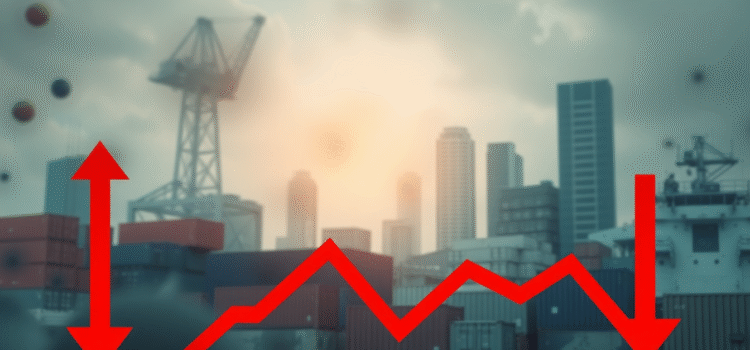
Trump’s New Tariff Announcement Disrupts Markets After Stability Period
On April 1, 2023, the financial markets experienced a seismic shift. Former President Donald Trump announced a series of new tariffs targeting imports from major trade partners such as China and the European Union, causing immediate ripples throughout the global economy. This sudden move, which comes after a calm period of market stability, has left investors and analysts scrambling to assess the broader implications. With an initial market reaction showcasing a 3.5% drop in the S&P 500 and a 2.9% decline in the Dow Jones Industrial Average, stakeholders are questioning the potential end of a stable economic phase.
Understanding the Tariff Announcement: A New Disruption
The new Trump tariff announcement involves imposing levies on $200 billion worth of goods imported from China and the European Union. The tariffs range from 10% to 25%, significantly impacting sectors that rely heavily on international supply chains. Of particular note is the sharp decline in technology and automotive stocks, with tech shares witnessing an average fall of 4.2% and major automakers suffering a 3.1% decrease. This development marks a stark contrast to the preceding quarter’s quiet period, during which the S&P 500 grew by 2.6%.
Analyzing the Financial Market Response
The reaction from the financial markets to the new tariff disruption has been swift and profound. Markets reacted unfavorably, reflecting investor concerns over the potential dampening of economic growth and increased trade tensions. According to analysts, if these tariffs are fully implemented, the U.S. could see a GDP reduction by 0.3% in the upcoming two quarters, complicating the recent trend toward economic stability.
The Broader Economic Impact and Future Outlook
As stakeholders ponder the implications of this development, potential impacts on global trade flows and U.S. trade policy are being closely examined. Analysts warn of a possible escalation in trade tensions, which could exacerbate market instability and introduce significant volatility in financial markets. For businesses, particularly those in manufacturing and consumer goods, the cost increases may translate to higher prices for consumers, fostering concerns about inflation and reduced consumer purchasing power.
Key Takeaways
- The tariff effects are immediate, with equity markets reacting negatively.
- Key sectors affected include technology and automotive, indicating vulnerabilities in dependent industries.
- Analysts predict a possible GDP contraction if the tariffs are sustained over time.
- Market stability is under scrutiny as the economic policy landscape continues to evolve.
Conclusion
The announcement of new tariffs by former President Trump has rekindled discussions on global market impact and economic stability. As investors and businesses navigate these turbulent waters, the need for strategic planning and risk management becomes paramount. Engaging discussions on platforms such as these are essential as trade tensions and policy changes unfold. Readers are encouraged to voice their perspectives and insights in the comments section below.
Sources
For further reading and verification, please refer to the following resources:
FAQ
What is the impact of Trump’s new tariffs in 2023? These tariffs have caused significant disruptions in the market, affecting major indices and inducing volatility.
How do tariffs cause market disruption? Tariffs increase costs for businesses, which may lead to higher prices for consumers, affecting overall market dynamics and investor sentiment.
What are the economic effects of the tariff announcement? If fully implemented, the tariffs could potentially reduce U.S. GDP by 0.3% and create uncertainty in international markets.
Why are tariffs a challenge to market stability? Tariffs introduce unpredictability in trade policies, affecting international relations and economic planning for businesses.








Comments